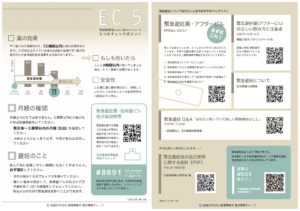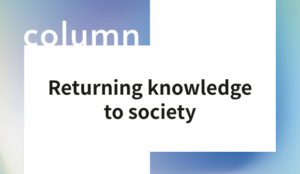Heath informatics, Kyoto University School of Public Health
As Japan’s demographic profile rapidly ages, the country is facing a shortage of medical resources. Pharmacists must address this issue not only by supplying pharmaceutical and hygiene products, as they have traditionally done, but by practicing public-health activities more broadly, supporting the health and longevity of people in the regional community generally. In pursuit of this goal, the Health Informatics Group develops educational programs for pharmacists and conducts research on the tangible impact of pharmacists’ work on patient outcomes.
In one study, the Group conducted randomized controlled trials on the effects on patients with diabetes and hypertension of support by pharmacists in pharmacies to improve their lifestyle habits. It was reported that even brief supportive interactions when dispensing pharmaceuticals improved glycated hemoglobin (HbA1c) by 0.4% and systolic blood pressure by 6 mmHg.
In early 2020, the COVID-19 pandemic began to spread, prompting mounting uncertainty around the world. After the Group conferred to discuss how it could do its part to assist pharmacists on the front lines, volunteers launched the Kyoto University SPH Pharmacy Group COVID-19 Countermeasure Support Project. In this project, the volunteers post information and newly prepared materials that are of use to pharmacists in fighting infectious disease, publishing the content free of charge. The Group is also exploring ways of analyzing the information provided by visitors and reflecting it in the information it disseminates, to provide information in a more effective manner and offer valuable assistance when it is needed.

Leaflet for an emergency contraceptive product for pharmacies. To improve understanding of sales of emergency contraceptive products at pharmacies the Group prepares and publishes questionnaires, videos, etc. to provide pharmacies with information they can use.

Leaflet for the COMPASS Libre research project. This research supports diabetes patients through the distribution of the Libre, a device that can measure blood-sugar levels without taking blood samples.







